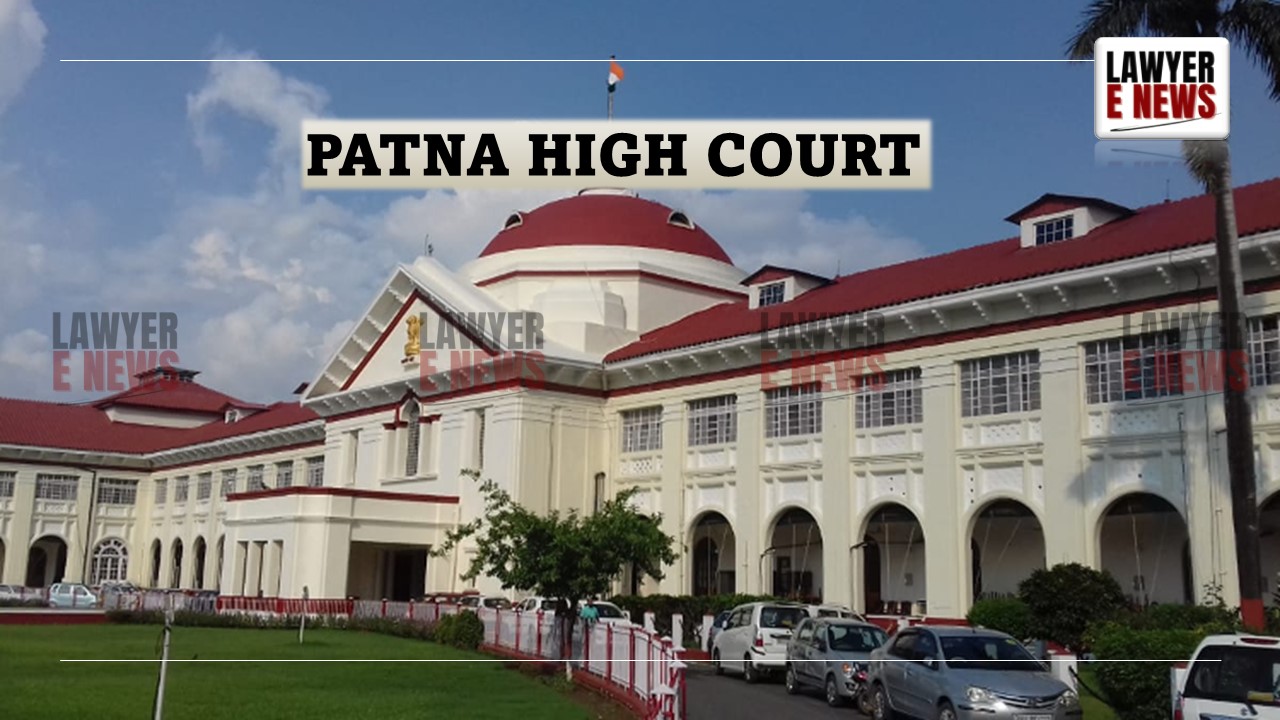-
by Admin
16 February 2026 1:47 PM



Without Blood or Urine Test, Prosecution Under Bihar Prohibition and Excise Act is Unsustainable - Patna High Court, in a significant judgment quashed a case registered under Section 37 of the Bihar Prohibition and Excise Act, 2016, ruling that a breath analyzer test alone is insufficient proof of alcohol consumption. The court observed that without confirmatory blood or urine tests, the prosecution cannot sustain an allegation of liquor consumption under the stringent prohibition law.
Justice Bibek Chaudhuri, allowing Criminal Writ Jurisdiction Case No. 1430 of 2024, held that the registration of an FIR based solely on a breath analyzer test violated established legal principles, emphasizing: "No person can be prosecuted merely on the basis of a breath analyzer reading without corroborative medical evidence. The prosecution must establish actual consumption of alcohol through scientific methods, as mandated by law."
"Criminal Prosecution Cannot Be Based on Presumption"
The petitioner, Narendra Kumar Ram, was arrested at his residence in Kishanganj on 2nd May 2024, following a breath analyzer test conducted by the Excise Department. The test indicated a blood alcohol concentration (BAC) of 41 mg/100 ml, leading to the registration of Excise Police Station Case No. 559 of 2024 (Special Case No. 572 of 2024).
Challenging the FIR, the petitioner’s counsel argued that:
• The case lacked scientific confirmation, as no blood or urine test was conducted, which is a mandatory requirement under the law.
• The petitioner had been prescribed homeopathic medicine containing alcohol-based solvents, which could have triggered the breath analyzer reading.
• The prosecution was driven by professional vendetta, as the District Magistrate had personally intervened to register the case after the petitioner objected to financial irregularities in government accounts.
• The State opposed the petition, arguing that the Bihar Prohibition and Excise Act, 2016, imposes an absolute ban on alcohol consumption and that government servants are specifically prohibited from consuming alcohol under Rule 4 of the Bihar Government Servants Conduct Rules, 1976.
"Supreme Court Precedents Require Scientific Confirmation of Alcohol Consumption"
The High Court relied on the Supreme Court’s ruling in Bachubhai Hassanalli Karyani v. State of Maharashtra (1971 3 SCC 930), where it was held that: "Mere smell of alcohol, unsteady gait, or incoherent speech cannot conclusively prove consumption of alcohol. Only a confirmatory blood or urine test can establish actual consumption beyond doubt."
Applying this principle, the court observed that the entire case against the petitioner was based on a breath analyzer test alone, without any supporting medical examination.
The court further noted that there was no allegation of unsteady gait, slurred speech, or other behavioral signs of intoxication, reinforcing that the prosecution failed to establish a credible case.
"Arbitrary Action and Procedural Irregularities Violate Fundamental Rights"
The petitioner also alleged mala fide intent, arguing that the District Magistrate had directed the registration of the FIR and his immediate suspension, which he claimed was a retaliatory measure for exposing financial discrepancies.
The High Court took serious note of these allegations, ruling: "Fundamental rights under Articles 14 and 21 of the Constitution cannot be compromised by arbitrary action. The criminal prosecution and disciplinary action against the petitioner were initiated without legal basis and are unsustainable."
"Prohibition Laws Must Be Enforced With Scientific Rigor"
Quashing the FIR and all subsequent proceedings, the High Court ruled that the Bihar Excise authorities must ensure strict compliance with scientific procedures before prosecuting individuals under prohibition laws.
The court concluded: "The authorities failed to follow due process. A breath analyzer test alone cannot be considered conclusive proof of alcohol consumption. The prosecution must be based on legally admissible evidence, and in the absence of such proof, the FIR is liable to be quashed."
With this ruling, the Patna High Court reaffirmed that prohibition laws cannot be misused to prosecute individuals without proper scientific validation, ensuring that legal safeguards are upheld even under stringent regulatory frameworks.
Date of Decision: 13 February 2025
